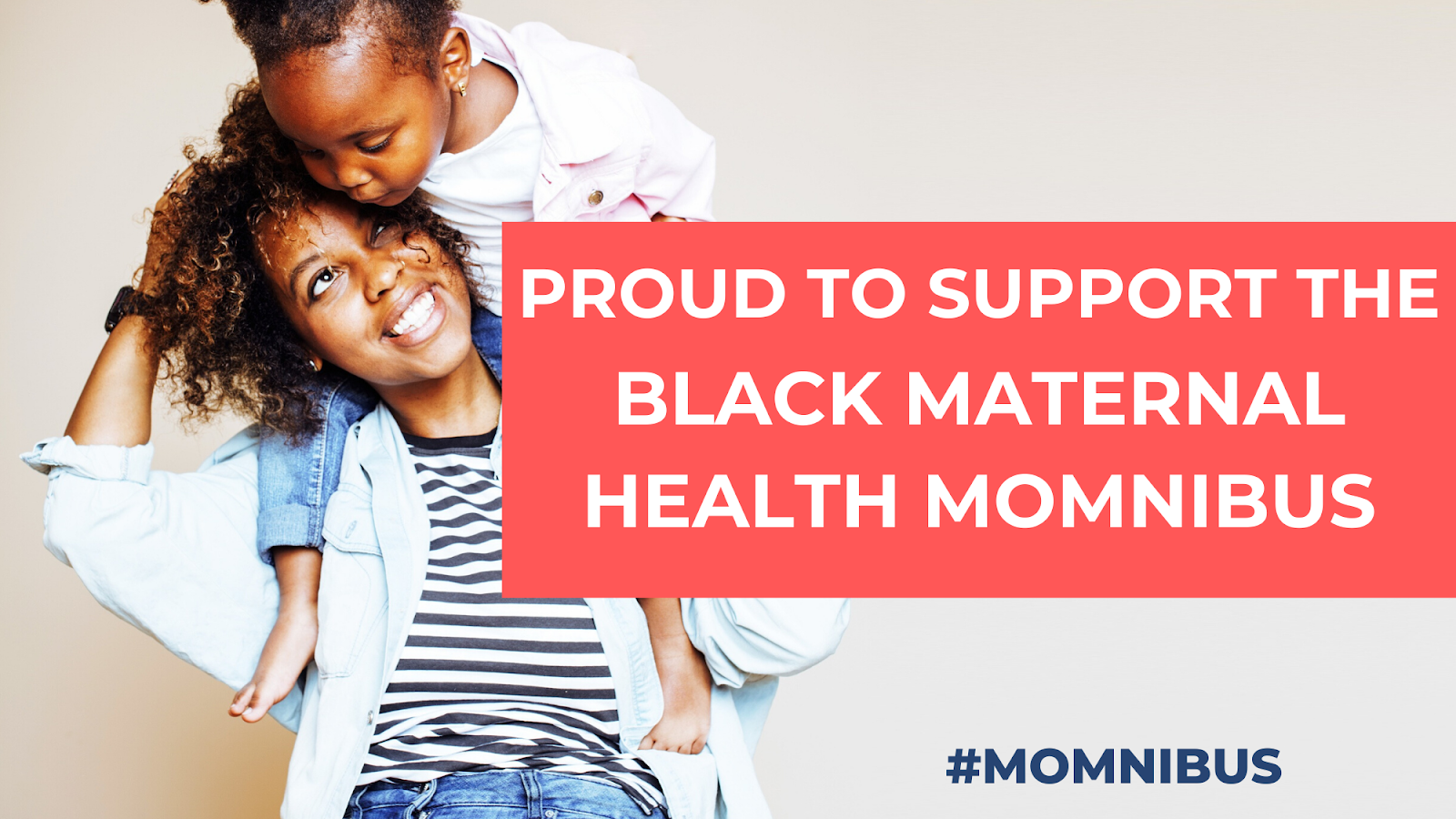By Sophia Kenward, SWHR Communications and Policy Intern
The United States leads the developed world in maternal mortality rates, but the majority of these pregnancy-related deaths are preventable. This maternal health crisis is marked by significant racial disparities, with Black women three times more likely than white women to die from pregnancy-related causes.
To address these disparities and improve health outcomes for women, the Black Maternal Health Caucus is championing the Black Maternal Health Momnibus Act, a comprehensive package of 12 bills reintroduced today. In the House, caucus chairs Rep. Alma Adams (D-NC) and Rep. Lauren Underwood (D-IL) lead the bill, while Sen. Cory Booker leads the Senate version. The package targets the social determinants of health that influence maternal health and mental health outcomes.
The Black Maternal Health Momnibus Act was originally introduced last year by Underwood and Adams and then-Senator Kamala Harris (D-CA). The bill introduced today includes new provisions targeting COVID-19 and pandemic response, climate change, and broad vaccination efforts.
In endorsing the bill, SWHR President and CEO Kathryn G. Schubert’s said: “This package of bills provides a comprehensive set of policies necessary to improve maternal health through efforts aimed at training, care coordination, workforce, data collection and support for community engagement that empowers pregnant and postpartum people in their care and health. SWHR commends updates that prioritize COVID-19 response and vaccination needs for those who are pregnant, which are crucial to protect maternal health in the midst of the ongoing pandemic. We applaud Congresswoman Underwood, Congresswoman Adams, Senator Booker, and the Black Maternal Health Caucus for their continued commitment to and championship of advancing maternal health equity.”
The Black Maternal Health Momnibus Act will:
- Make critical investments in social determinants of health — like housing, transportation, and nutrition — which influence maternal health outcomes.
- Provide funding to community-based organizations that are working to improve maternal health outcomes and promote equity.
- Comprehensively study the unique maternal health risks facing pregnant veterans and support Department of Veterans Affairs maternity care coordination.
- Grow and diversify the perinatal workforce to ensure every mom in America receives maternity care and support from people they can trust.
- Improve data collection processes and quality measures to better understand the causes of the maternal health crisis in the United States and inform solutions to address it.
- Invest in programs to expand access to treatments and support for maternal mental health conditions and substance use disorders.
- Improve maternal health care and support for incarcerated moms.
- Invest in digital tools like telehealth to improve maternal health outcomes in underserved areas.
- Promote innovative payment models to incentivize high-quality maternity care and continuity of health insurance coverage from pregnancy through labor and delivery and up to one year postpartum.
- Strengthen programs to improve maternal health during COVID-19 and future public health emergencies.
- Invest in community-based initiatives to reduce levels of and exposure to climate change-related risks for moms and babies.
- Promote maternal vaccinations to protect the health and safety of moms and babies.
Read more about some of the bill’s key priority areas and specific provisions below.
COVID-19 Response
The COVID-19 pandemic threatens to exacerbate existing racial and ethnic disparities in maternal health. According to the Centers for Disease Control and Prevention (CDC), COVID-19 disproportionately affects Black communities and pregnant people are at a higher risk for severe COVID-19 symptoms and death. Pregnant and lactating people have also been excluded from late-stage clinical trials for the vaccine.
The Maternal Health Pandemic Response Act would provide the resources to research the impact of COVID-19 on maternal health outcomes. This bill seeks to improve data collection, surveillance, and research efforts for the COVID-19 pandemic and future public health emergencies. Additionally, the bill supports ensuring that COVID-19 treatments and vaccinations are safe for pregnant and lactating people.
Workforce Needs
Approximately 10% of births in the United States occur in counties that have limited access to maternity care. More than 2.2 million women of childbearing age live in maternity care ‘deserts,’ both in rural and urban areas. The Perinatal Workforce Act would establish a grant program to increase the number of maternity care providers and non-clinical perinatal health workers, in order to better support women throughout their pregnancies and postpartum periods.
Racial biases in the health care system are the root of racial disparities in maternal outcomes. Dedicated to a victim of the Black maternal health crisis, the Kira Johnson Act would establish a grant program to study and implement consistent bias, racism, and discrimination trainings for all employees in maternal care settings. It also would establish a program to encourage reporting instances of racial, ethnic, and other biases in the health care system to promote accountability.
Equity and Access
Social determinants of health such as racial discrimination, poor quality neighborhoods, and acculturation increase the risk of negative birth outcomes. The Social Determinants for Moms Act would make investments to address social determinants that affect maternal health. The bill would also establish a national task force across federal agencies to address social determinants of health for pregnant and postpartum people.
The Tech to Save Women Act would invest in telehealth and other digital tools to ensure pregnant and postpartum people in underserved areas are able to access maternal care. The bill would also establish a grant program designed to promote digital tools that address racial and ethnic disparities in maternal health outcomes, particularly in underserved areas.
SWHR applauds the Black Maternal Health Caucus for its efforts to address the maternal health crisis and is pleased to endorse the Black Maternal Health Momnibus Act of 2021.
